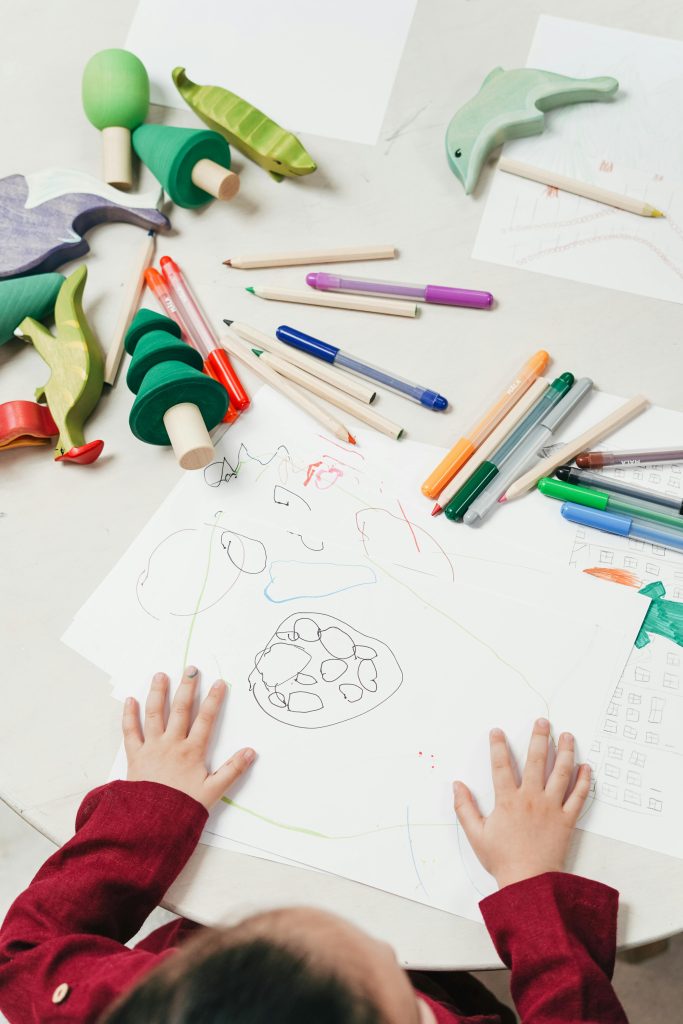As a mum, every moment shapes your child’s future—from playtime to snack time. That’s why the importance of introducing education and embedding learning in daily activities cannot be overstated, especially when your child spends time with a nanny. Embedding learning into everyday routines ensures your child absorbs knowledge naturally and joyfully, without formal pressure.
Children are naturally curious learners—and everyday experiences offer a rich foundation for growth. With the right nanny, learning becomes second nature—through talking, playing, cooking, reading, and exploring.
Understanding Early Childhood Learning
Why the Early Years Matter
Between birth and age five, children build more neural connections than at any other time in life. This is a prime period for fostering language, cognitive skills, and emotional growth through everyday interactions, supported by caregivers.
Role of Caregivers and Nannies
A nanny who understands early childhood learning plays a vital role beyond basic supervision. When mums hire a nanny focused on education, they ensure that their child’s development is nurtured even in their absence.
The Role of Nannies in Educational Development
What Educational Nannies Do
Educational nannies weave learning into daily life—counting steps during walks, turning snack time into math, playing word games at bedtime, or involving children in meal prep to teach measurements.
Choosing the Right Nanny with a Learning Focus
When hiring, look for a nanny who has experience or training in early education. Ask candidates to describe how they’ve embedded learning into routines and observe their enthusiasm for creative interaction.
Embedding Learning in Everyday Routines
Turn Meals into Math Moments
Use snack or mealtime to count pieces of fruit, compare sizes, and discuss portion sizes. Introduce concepts like more/less, big/small, and sequencing naturally during meals.
Use Chores as Life Skill Lessons
Invite children to help fold clothes by matching shapes or colours, set the table in patterns, or tidy toys by sorting. These everyday tasks build essential life skills and cognitive awareness.
Educational Play: Learning Through Fun
Age-Appropriate Educational Toys
Simple toys like blocks, puzzles, and storytelling cubes build problem-solving, spatial awareness, and storytelling skills. Regularly rotating toys keeps the experience fresh and engaging.
Outdoor Activities That Teach
A stroll through the park can become a nature lesson: look for bugs, collect leaves, observe birds, and ask questions. Outdoor play nurtures curiosity and hands-on learning.
Language and Literacy in Daily Life
Talking and Storytelling
Speak out loud while you explain actions, ask open-ended questions, and encourage your child to express thoughts. Every conversation is an opportunity to build language skills.
Reading Routines with Nannies
Set aside time each day for reading—even just 15 minutes. Consistent storytime builds vocabulary, comprehension, imagination, and a love of books.
Building Social and Emotional Intelligence
Teaching Empathy Through Interaction
Through play and human interaction, children learn to recognise emotions and understand others’ perspectives. Role-play, sharing games, and guided discussions help build empathy.
Conflict Resolution Skills During Play
When children disagree, a nanny can guide them to express feelings, listen to each other, and find solutions—teaching social skills and emotional control.
Nurturing Curiosity and Creativity
Art and Imagination in Routine Tasks
Involve your child in creative tasks—decorate snack plates, draw story scenes, or use recycled materials for crafts. These moments spark imagination and creativity.
Encouraging Questions and Exploration
Children naturally ask “why,” and a curious nanny will nurture their questions with simple experiments, books, and exploration rather than shutting them down.
Tech Tools That Support Learning at Home
Educational Apps Nannies Can Use
Apps like Khan Academy Kids, Endless Alphabet, or ABCmouse offer playful ways to learn letters, numbers, and problem-solving. A nanny can choose screen time wisely and integrate the apps into structured routines.
Screen Time Limits and Balance
Screen-based learning should complement—not dominate—your child’s day. Set clear limits and ensure plenty of non‑screen play, arts, and outdoor exploration.
Tips for Mums: Embedding Education at Home
Collaborating with Your Nanny
Be actively involved: discuss your child’s interests and learning goals with your nanny, and ask them to maintain a daily diary of educational milestones, books read, and observed skills.
Setting Learning Goals for Your Child
Identify simple goals like counting to ten, naming shapes, recognising body parts, or learning new words. Review progress regularly to keep learning purposeful yet flexible.
How to Train Your Nanny to Support Learning
What to Communicate
Clearly express your expectations: that learning should be embedded in routine activities—and not overly structured. Provide examples and daily routines that align with your goals.
Tools and Resources for Nanny Training
Consider sharing resources like The Whole‑Brain Child or enrolling the nanny in early learning workshops or online training platforms. Encouraging their professional growth benefits your child.
Measurable Improvements in Child Development
Children who experience consistent, embedded learning show stronger language, early math skills, better attention spans, and increased self-confidence when entering school.
Common Mistakes to Avoid
Over‑Scheduling Learning
Structured activities aren’t everything. Too much formal learning can overwhelm. Children need downtime, open play, and room for imagination—not just planned lessons.
Neglecting Free Play
Free play fosters creativity, independence, and problem-solving. Make sure your nanny respects and encourages unstructured play daily.
Embedding Values and Morals Alongside Education
Teaching Respect and Kindness
Moments like helping others, caring for pets, or saying thank you teach values naturally. A nanny who models kindness and patience helps instill moral behavior.
Role Modeling Through Actions
Children mimic adults. A nanny who demonstrates calm, respectful, and considerate behavior sets a powerful example.
The Long‑Term Benefits of Early Embedded Learning
Academic Readiness
When learning is infused into daily life, children start school better prepared—with basic understanding of shapes, numbers, letters, and confidence in learning new things.
Emotional Resilience and Independence
Children encouraged to explore, ask questions, and handle small setbacks build resilience and self‑direction—traits that last a lifetime.
FAQs About Educational Nannying
1. What should I look for in a nanny who supports learning?
Seek someone with early childhood experience, strong communication skills, and creative ideas for incorporating learning into daily routines.
2. How can I ensure my nanny embeds learning without being too rigid?
Focus on playful learning moments—avoid pushing academic drills. Encourage flexibility, open‑ended play, and observation over structure.
3. Do I need special materials at home for educational nannying?
Not at all. Household items, books, simple toys, and nature often provide enough opportunities for learning.
4. Can screen time be educational for toddlers?
Yes—if used wisely. Choose high‑quality educational apps and balance screen time with hands‑on and outdoor activities.
5. How do I track my child’s progress with the nanny?
Ask for a learning journal or weekly updates, and hold occasional check‑ins to discuss goals and celebrate new milestones.
6. Is this approach suitable for babies under 2 years old?
Definitely. Infants learn through talking, singing, touch, facial expressions, and interactive games—ideal for embedding education even in everyday moments.




